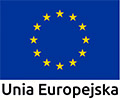Samuel Willenberg described his escape from the camp during the revolt on August 2, 1943 as follow: “Now I run with the others toward the vegetable garden gate. Reaching the fence, a horrifying sight greeted me: mases of human corpses strewn between the tank obstacles. Dead prisoners stood erect like tombstones; thick masses of human bodies leaned against the obstacles and barbed-wire fence”.
Source: S. Willenberg, Revolt in Treblinka, Warszawa 1992, p. 145.
The ceremony was organized by the Emanuel Ringelblum Jewish Historical Institute in cooperation with the Treblinka Museum. This year is the 80th anniversary of the armed revolt in Treblinka. The ceremony was inaugurated by Ada Krystyna Willenberg, the widow of Samuel Willenberg, a former prisoner of the camp. She guided participants around the “Image of Treblinka in the eyes of Samuel Willenberg” outdoor exhibition. It was exhibited at the symbolic sidetrack in the former area of the death camp. The exhibition was organized by courtesy of the Warsaw Institute of National Remembrance. The sculptures will be exhibited at the permanent exhibition in the new building of the Treblinka Museum.
The ceremony was attended by Ada Willenberg and her family and Pavla Fröhlich Glazar – daughter of Richard Glazar, a former prisoner of the Death Camp, author of the book entitled “Treblinka Station”.
The ceremony at the central monument was commenced by Monika Krawczyk, Director of the Jewish Historical Institute. She emphasized that Treblinka is one of the largest Jewish cemeteries. After that, the following guests spoke:
Ada Willenberg – Holocaust survivor, widow of Samuel Willenberg, a prisoner of the Treblinka Death Camp,
A letter from the President of the Republic of Poland, Andrzej Duda, was read out by Piotr Ćwik – Deputy Head of the Chancellery of the President of Poland,
Małgorzata Kidawa-Błońska – Deputy Speaker of the Sejm of the Republic of Poland,
Gabriela Morawska-Stanecka – Deputy Speaker of the Senate of the Republic of Poland,
Prof. Piotr Wawrzyk Secretary of State in the Ministry of Foreign Affairs,
The letter of the Secretary of State Dr. Jarosław Sellin was read by Dr. Piotr Szpanowski – Director of the Department of Cultural Heritage at the Ministry of Culture and National Heritage,
Dani Dayan – Director of the Yad Vashem Institute,
Yacov Livne – Ambassador of Israel to the Republic of Poland,
Robert Rohde – Minister Plenipotentiary at the Embassy of the Federal Republic of Germany,
Adam Struzik – Marshal of the Mazowieckie Voivodeship,
Aldona Machnowska-Góra – Deputy Mayor of the Capital City of Warsaw Warsaw,
Karol Polejowski – Deputy President of the Institute of National Remembrance,
Rabbi Meyer May – Executive Director of the Simon Wiesenthal Center in Los Angeles,
The ceremony was also attended by:
Catherine Godin – Ambassador of Canada to Poland, Robert Rohde – Minister Plenipotentiary of the Federal Republic of Germany, Crispian Wilson – Political Counselor from Great Britain, Chargée d’affaires Lucie Stepanyan from the French Embassy, Jorge Vieira Rodrigues – Deputy Head of Mission of the Embassy of Portugal, Emily Martinez Roca – Secretary for Human Rights at the Embassy of the United States, Julia Tzerova – Counselor at the Embassy of Bulgaria, a delegation of the Union of Veterans of the Republic of Poland and Former Political Prisoners: President of the Main Board – Warsaw Insurgent Col. Czesław Lewandowski, former prisoner of the Stutthof concentration camp; Elżbieta Sadzyńska – Secretary General of the Main Board, Józef Maliński President of the Mazowieckie Voivodeship Board and Krzysztof Rinas – Director Offices of the Main Board and Dorota Łoboda – representative of the City Council Office of Warsaw, Aleksander Ferens – Mayor of the Śródmieście District, Dariusz Stopa from the Marshal’s Office of the Mazowieckie Voivodeship, Elżbieta Sadowska – Starost of the Sokołów Podlaski District, Jacek Odziemczyk – Chairman of the Sokołów Podlaski District Council, Marek Renik – Deputy Staroste of the Węgrów District, Grzegorz Szuplewski – Mayor of Piastów, Jan Słomiak – Mayor of the town and commune of Kosów Lacki, Bożena Kordek – Mayor of the Małkinia Górna commune, Albert Stankowski – Director of the Warsaw Ghetto Museum, representatives of the POLIN Museum of the History of Polish Jews, Kinga Biedrzycka from the Pawiak Prison Museum, branch of the Museum of Independence, Grzegorz Gemzała – representative of the Office for War Veterans and Victims of Oppression, Izabela Bednarczyk – Deputy Director for Artistic Affairs of the Mazowiecki Institute of Culture, Andrzej Bieńkowski – Deputy Director for Administration and Scholarships of the National Center for Culture, Tomasz Piechal from the Audiovisual Institute of Film Archive, Jacek Młynarski – Member of the Main Board and Edward Odoner Chairman of the Audit Committee of the Social and Cultural Association of Jews in Poland, Maya Samokovlija – Director of the World Jewish Congress, Renata Wójtiuk-Janusz – Member of the Board of the Nissenbaum Family Foundation, Małgorzata Justyna Łukasiewicz-Traczyńska – Director of the Dobry Grunt Foundation, Grzegorz Berendt – Director of the Museum of the Second World War in Gdańsk, Małgorzata Iwańska-Kania – Director of the Municipal Public Library in Sokołów Podlaski with Piotr Rybak – an employee of the History Documentation Department of the city of Sokołów Podlaski, Karolina Kolbuszewska – Director of the Museum of the Pilecki Family House in Ostrów Mazowiecka, Piotr Popławski – Head of the Department of Educational and Cultural Projects at the Sybir Memorial Museum, Marek Fiuk, creator of the “Meritorious for the Treblinka Museum” medal, Tomasz Nowak, Barbara Janina Sochal – President of the Polish Association of Janusz Korczak, Ewa Teleżyńska-Sawicka and Paweł Sawicki from the “Memory of Treblinka” Foundation, Ewa Olszewska – Director of the Municipal Cultural Center in Kosów Lacki, Hanna Przesmycka – Director of the White Eagle School in Kosów Lacki, Agnieszka Gaś – Director of the Stanisław Staszic School Complex in Małkinia Górna, Anna Maliszewska – Deputy Director of Stefan Wyszyński Primary School in Kosów Lacki, Artur Ziontek Member of the Museum Council at the Treblinka Museum, Edward Sułek and Peter Wetzel, representatives of ZHP Rój “Sosna” Grey Ranks in Otwock
After the speeches, Jewish rabbi and Christian priests prayed together with the participants of the ceremony. The prayers were led by Michael Schudrich – Chief Rabbi of Poland, Fr. Dr. Grzegorz Giemza – Pastor of the Evangelical-Augsburg parish in Węgrów, Fr. Krzysztof Nagórny – from the Catholic parish in Prostyń.
After the official part, the participants had a possibility to see the place where the gas chambers were found in August 2023, and where they were probably originally located. The elements of the building discovered during archaeological excavations will make it possible to learn more the gas chambers in the death camp. Additional analyzes are currently underway and the research will allow to finally conclude that these are actually fragments of the chambers.
An important part of the ceremony was the ceremonial signing of the Act of Foundation for the construction of a new exhibition and educational facility on the premises of the Treblinka Museum. All participants were allowed to sign it.
During the ceremony, Marshal Adam Struzik received the “Meritorious for the Treblinka Museum” commemorative medal. The medal honours special merits for the Treblinka Museum. The Nazi German Extermination and Forced Labour Camp (1941-1944). It is an expression of gratitude for the commitment and help in the implementation of the statutory objectives of the Museum.
On that day, the finissage of the “Fissures. Practicing the Memory” exhibition by Barbara Janina Sochal and Aga Sochal was held.
The participants could also see the outdoor exhibition “Revolt in the SS-Sonderkommando Treblinka. Exhibition on the 80th anniversary of the revolt of the prisoners of the Treblinka II Death Camp”, prepared by the Treblinka Museum. The exhibition will be presented until the end of August. The exhibition’s author is Monika Samuel, an employee of the research department of the Treblinka Museum.
On such an important day, the following delegations paid tribute to the Victims of the Treblinka I Penal Labour Camp by laying flowers at the Execution Site: the President and Prime Minister of the Republic of Poland, the Jewish Historical Institute, the Marshal of the Mazowieckie Voivodeship, the Starosty in Sokołów Podlaski, and the Treblinka Museum. The tribute was paid before the commencement of the ceremony of the 80th anniversary of the prisoners’ revolt, which was held at the Memorial Site of Treblinka II Death Camp.





